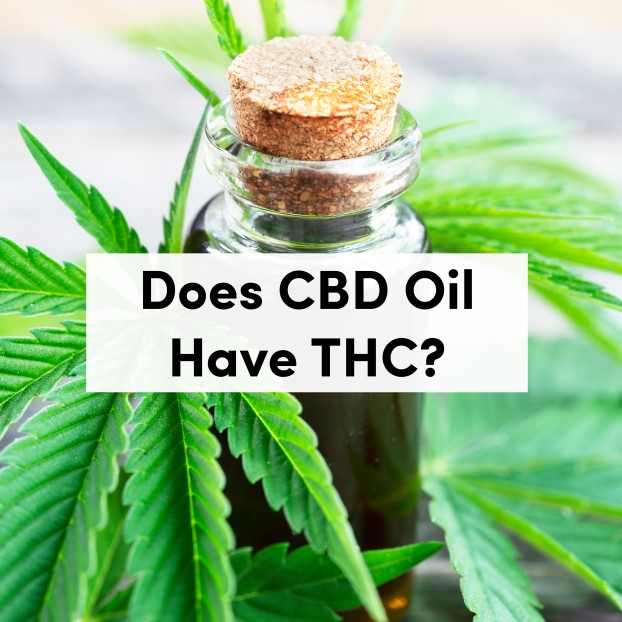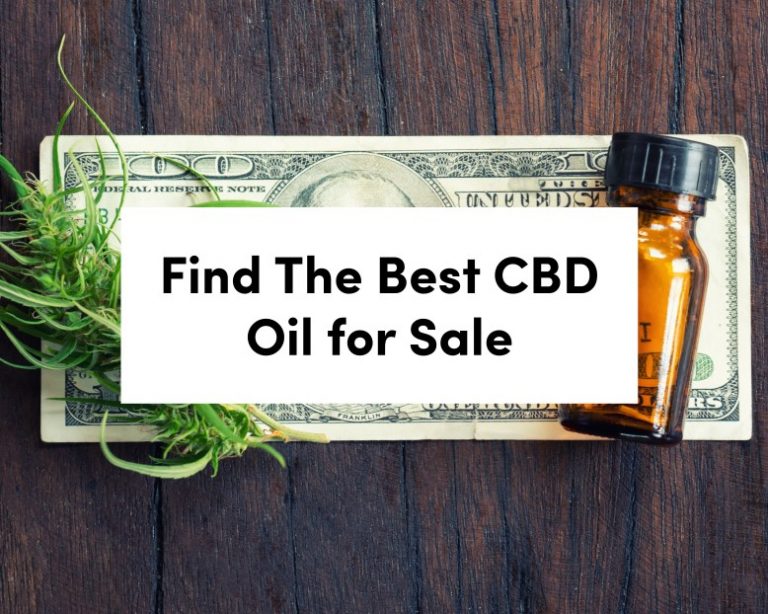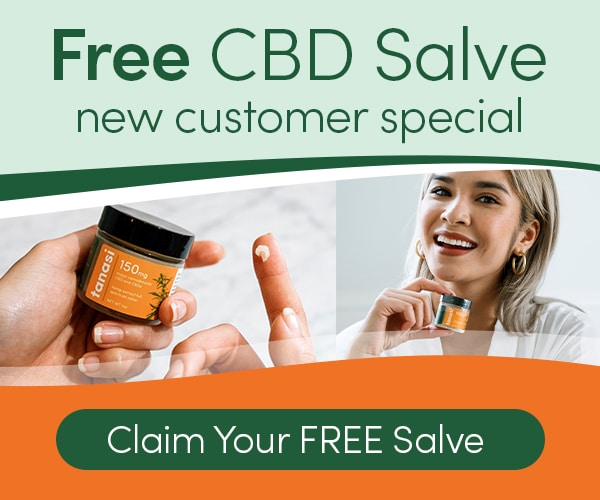Does CBD Oil Have THC In It?

Posted on January 26th, 2021
‘If I were to take CBD oil, will I be ingesting THC as well?’
That’s among the most common questions savvy enthusiasts of CBD products gain ask themselves before purchasing. As the popularity of the compound continues to surge, more and more people are asking themselves if that it’s necessarily the case.
Not that long ago, cannabinoids stepped into the spotlight. The full legalization of recreational cannabis in some states, along with the federal legalization of hemp, made that happen. And as awareness of the product grew, so did the questions pop up in the consumers’ heads. One of the main questions is CBD oil’s relationship with the other most famous cannabinoid – THC.
CBD oil became a coveted compound lately thanks to its many potential health benefits and for being non-psychoactive. On the other hand, psychoactivity is exactly the reason why THC is famous. As the cannabinoid responsible for the “high” effect of cannabis, THC is why law enforcement banned cannabis to being with. Although legal in some states, recreational cannabis remains frowned upon in others. Thus, if, say, your employer caught you with THC in your blood via a drug test in one of those states, you would be in trouble. Most CBD consumers want to use the compound precisely because of its therapeutic benefits and lack of psychoactivity when compared to THC.
However, for these consumers, the question inevitably arises – Does CBD oil have THC in it? After all, both compounds come from the same plant. Is it really possible to isolate one from the other? Is there a way for them to enjoy CBD that has not even a trace of THC? Let’s answer those questions.
What Is CBD Oil?
“Cannabinoids” is the umbrella term used to describe the main chemical compounds of the cannabis plant. CBD or cannabidiol is among the two most abundant cannabinoids in the plant.
Manufacturers use different methods to extract CBD from cannabis/hemp to create what you know as CBD oil. Typically, most companies use the following methods:
- CO2 Extraction Method
- Solvent Extraction Method
Cannabidiol’s chemical composition and effects remain the same whether it came from marijuana or hemp, both varieties of cannabis.
What Is THC?
Like CBD, THC is another cannabinoid. However, unlike CBD, THC is the chief psychoactive compound in cannabis plants. THC’s interaction with cannabinoid receptors in the body and is why you get high from cannabis.
Some varieties of cannabis, like marijuana, contain a high percentage of THC and a low percentage of CBD. On the other hand, industrial hemp is the opposite, being able to have THC levels of less than 0.3% with around 18% CBD.
A Breakdown of CBD Oil
CBD comes in many different presentations; one of them is CBD oil. When asking, “Does CBD oil have THC in it?” It is crucial to understand the different types of it and whether they hold other cannabinoids in them. Products labeled CBD oil could be one of the following:
Full Spectrum CBD
Full-spectrum CBD oil is one of the more popular CBD oil types. Full-spectrum means the CBD oil contains the full range of cannabinoids, including CBG, CBDA, CBA, mostly trace amounts of THC. It also has other chemical compounds found in the cannabis plant, like terpenes and flavonoids.
Broad Spectrum CBD
Broad-spectrum CBD oil is similar to full-spectrum CBD oil in that it contains a variety of cannabinoids. However, it specifically does not have any THC in it as the manufacturer removes even the slightest traces of it.
CBD Isolate
CBD isolate differs from both broad and full-spectrum CBD oils and is pure CBD. It is free of terpenes and other cannabinoids. The good thing about CBD isolates is that its very potent.
If you’re looking for CBD oil without THC, look closely at the labels of the CBD oil you’re thinking of buying. Read the info relating to extraction methods, dosages, and terms such as “No THC,” “broad spectrum,” or simply, “isolate.”
What Are the Potential Medical Benefits of Using CBD Oil Containing THC?
Cannabinoids like THC and CBD interact with the receptors from your body’s Endocannabinoid System (ECS). Of those receptors, there are two, CB-1 and CB-2. Depending on which cannabinoid is it that you are taking, it will bind with one of both of those at varying intensities. That interaction is what ultimately causes the signature effects each cannabinoid has in your body.
Effects Of CBD
So far, studies indicate that CBD does not bind to cannabinoid receptors as THC does. Instead, it attaches to the CB-1 receptors, which prevents THC from binding to them as strongly as it normally does. Thus, CBD can soften the overall psychoactive effects THC has on you.
Also, of the Invidia effects CBD has on its own, preliminary research and anecdotal evidence suggest that CBD may help with:
- Anxiety
- Inflammation
- Weight loss
- Pain management
- Depression
- Seizures
- Nausea
- Psychosis
- Cardiovascular diseases
Effects Of THC
THC binds with CB1 receptors. These are predominant in the brain regions associated with movement, pain sensation, memory, and learning. Its effect distorts the natural functioning of those receptors causing its signature psychoactive impairment. Yet, THC also has a significantly wider influence on the ECS and yields many therapeutic benefits as well. THC is able to treat the following conditions as a result:
- Lack of appetite
- Nausea
- Muscle spasticity
- Inflammation
- Insomnia
- Chronic pain
As you can appreciate, CBD and THC do have some overlapping effects; thus, could using them together be better?
The Entourage Effect
CBD and THC can work together wonderfully, thanks to what researchers refer to as the entourage effect. THC, CBD, and the rest of the other compounds in cannabis will work synergistically to produce a more pronounced, sustained, and well-rounded effect.
Research studies show that the whole is better than the isolation of parts. If you want to get the most out of the entourage effect, begin with high-CBD/low-THC CBD oil like full-spectrum CBD. According to an Australian study, cannabis with high amounts of THC and low CBD may be more intoxicating than THC alone.
So, Does CBD oil have THC in it?
The short answer is that, yes, some products do, but others don’t.
Most CBD oil products will contain only trace amounts of THC. If you’re interested in CBD oil, but want to completely avoid THC, consider choosing CBD isolate and broad-spectrum CBD products. On the other hand, if THC’s intoxicating effects are an issue, then you still probably have nothing to worry about. Even full-spectrum CBD oil contains only trace amounts of THC is very unlikely to produce any noticeable psychoactive effect. In short, you are not going to get high!
This information brings another question – what does CBD oil containing THC mean for CBD oil users and drug tests?
Will CBD Oil Containing THC Make Me Fail A Drug Test?
In theory, failing a drug test because of taking CBD oil should be next to impossible if your CBD oil contains less than 0.3% of THC. However, make sure you do buy a product from a high-quality manufacturer. The best manufacturers will have their products tested by a 3rd party lab and put up the results on the label and on their website. Sketchy manufacturers might use a subpar extraction technique that leaves much more THC in the final product. They are easy to spot since they are very dodgy when it comes to sharing their test results, so do your homework.
3 Easy Ways to Ensure Your CBD Oil Doesn’t Contain THC
Is THC not your cup of tea? Are you still asking yourself: Does CBD oil have THC in it? If so, you’ll be glad to know there are several ways to ensure that your CBD oil experience is THC-free. They include:
- Look up product label information – Reputable brands will be straightforward about exactly what is in their CBD products. Be sure to review the product details before you purchase.
- Confirm the lab reports – Visit the brand’s webpage and check their lab test results – which should detail the percentage of THC for each batch.
- Consider the source – Check to make sure that the CBD product you buy is hemp-derived. Some CBD products are derived from high-THC cannabis strains and may contain more than .3% THC.
Side Effects of CBD Oil & THC?
While research and anecdotal evidence suggests that most people tolerate CBD well. That said, taking high amounts of CBD oil might lead to the following side effects:
- Diarrhea
- Nausea
- Changes in mood and increased irritability and agitation
- A dry mouth
On the other hand, the common side effects of THC include:
- Fatigue
- Impaired memory
- Increased appetite
- Feelings of paranoia or anxiety
- Red, dry eyes
- Dry mouth
- Changes in perception of time
- Sense of euphoria
Anyone considering incorporating CBD oil in their routine should speak to a doctor first, however. CBD can interact with certain common prescription drugs. Thus, if you are taking one of those already, you are more than likely to experience unexpected side-effects. Make sure to get the all-clear from your physician before your first foray into the CBD world.



